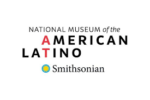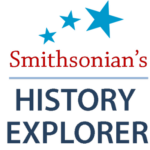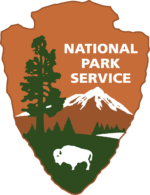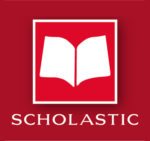Diversity & Inclusion
- ADD/ADHD (8)
- Diversity, Equality, Cultural Competency (57)
- Gender Responsiveness (16)
- Global Learning (14)
- Immigration (47)
- Inclusion/Disability Awareness (28)
- LGBTQIA2+ (45)
- Social Justice (51)
The Family Acceptance Project at San Francisco State University offers research-based intervention, education, and policy initiatives to support families and youth. These initiatives promote well-being and offer preventative measures to the health and mental risks faced by lesbian, gay, bisexual, transgender and queer-identified (LGBTQ) children and youth.
The Family Acceptance Project puts research into practice and offers a myriad of resources to both families and educational providers in order to build greater inclusivity and acceptance.
In commemoration of Bebe Moore Campbell National Minority Mental Health Awareness Month, Mental Health America (MHA) sponsored the creation of the 2024 BIPOC Mental Health Toolkit.
This toolkit offers fact sheets, outreach ideas, sample newsletters, social media tools, and more to better support youth in our communities.
In commemoration of Bebe Moore Campbell National Minority Mental Health Awareness Month, Mental Health America (MHA) sponsored the creation of the 2024 BIPOC Mental Health Toolkit.
This toolkit offers fact sheets, outreach ideas, sample newsletters, social media tools, and more to better support youth in our communities.
The National Museum of the American Latino in partnership with the Smithsonian offers Hispanic Heritage Month Resources for the community to join in the celebration from September 15 – October 15. This resource offers virtual exhibits, educational resources, as well as discussions about the importance of celebrating Hispanic Heritage Month.
This Changemaking Manual, created by Peace First, provides youth with a simple step-by-step guide to move through change processes within their communities. Resources also provided by Peace First include “The 3 Cs of Changemaking: Courage, Compassion, and Collaboration”, a resource that helps young leaders develop their personal self-awareness and values.
Sponsored in partnership with The Myron and Alayne Meilman Family Foundation, the Museum of Jewish Heritage: A Living Memorial to the Holocaust offers 11 free lesson plans for educators to use when discussing the Holocaust, social justice, and advocacy. This museum curriculum collection also offers a guide for educators using the resource.
The development of this resource was further supported by the New York City Department of Education.
Safety on college campuses are essential to student well-being, particularly for students who identify as LGBTQ+. This resource, provided by College Educated, is designed to support students, parents, teachers, and campus professionals with a guide to navigate challenges faced while participating on a college campus.
The hope of this guide is to provide a resource that supports the LGBTQ student, parents, teachers and campus professionals to increase understanding, provide resources and education and hopefully help make connections that will keep an LGBTQ in college and successful as they transition to the workplace.
In the following report, Hanover Research examines literature and case studies on engaging diverse families in public, K12 settings. It focuses in particular on the experiences and needs of large, urban public school districts, and on the experiences and needs of African-American and Hispanic families.
Explore Black History Month with your students using lessons, podcasts, activities, and primary sources curated by Smithsonian History Explorer.
Examine collections of the Museum’s key resources on major themes in American history and social studies teaching. Additional resources can be found in the main search areas of their website.
“Separate but equal” laws segregated society and culture in the United States for the first half of the 20th century. After World War II, the tide began to turn and one place where Americans saw a change was in professional sports. In 1946, African American baseball player and military veteran Jackie Robinson became the first black man to play on a white team in a segregated league. With support from his wife and community, he broke that “color barrier” during spring training in Daytona Beach, Florida, at the City Island Ballpark.
Robinson earned the title Rookie of the Year in 1947, played in the World Series in 1955, and was a passionate Civil Rights activist when his athletic career ended. The “City Island Ballpark” is listed on the National Register of Historic Places for its association with him and renamed in his honor. This lesson explores Jackie Robinson’s life and the events of 1946, racism and “Jim Crow,” pop culture’s influence on a nation of laws, and the historic beachfront ballpark.
This lesson can be used in U.S. history, social studies, and other curricula that examine African American history and civil rights in the United States following World War II.
Commemorate Black History Month in your classroom with lesson plans and resources that cover topics ranging from civil rights events to discussions about race in current events. These lessons are appropriate for history, ELA and social studies classrooms, and include resources for students in middle or high school.
The Scholastic Storyworks archives bring you some of our most beloved stories for Black History Month, from a powerful play about a kid who led a series of sit-down strikes to a gripping nonfiction article about the co-discoverer of the North Pole. We hope you enjoy sharing these Black stories with your students.








